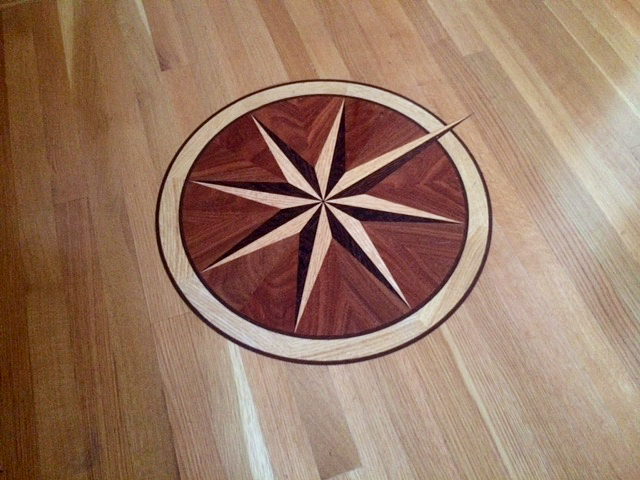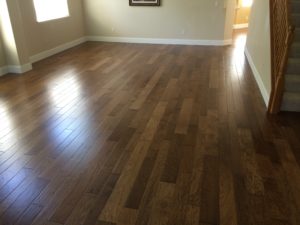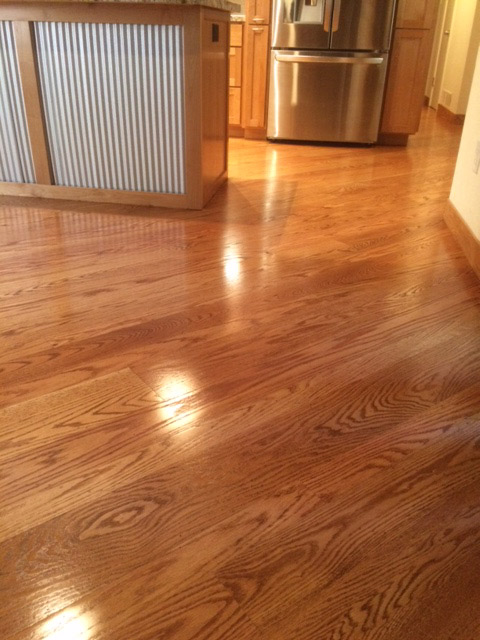Can I Refinish My Engineered Wood Floors?
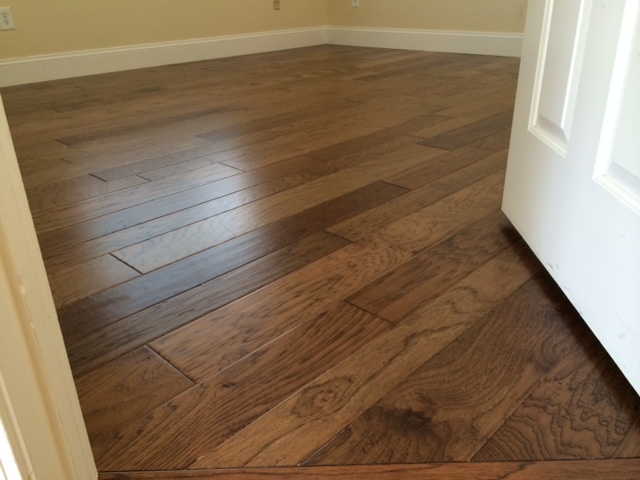 We were recently hired to install an engineered wood floor over a concrete slab in Danville, CA. This job involved a complete tear out of carpets and tile floor coverings, minor leveling and a moisture barrier installation prior to the floors being installed. The product itself was a hand scraped floor with a factory finish. That meant a few things:
We were recently hired to install an engineered wood floor over a concrete slab in Danville, CA. This job involved a complete tear out of carpets and tile floor coverings, minor leveling and a moisture barrier installation prior to the floors being installed. The product itself was a hand scraped floor with a factory finish. That meant a few things:
- This product could not be refinished in the future
- This floor could only be cleaned and recoated
- You could not change the texture or the color of the floor in the future
Home owners who choose pre finished wood flooring products are usually not aware of the consequences of their decisions. Meaning, some don’t realize that their floors could not be refinished in the future, or even worse could not be recoated. That meant in some cases that the floors would have to be replaced within five to ten years of install.
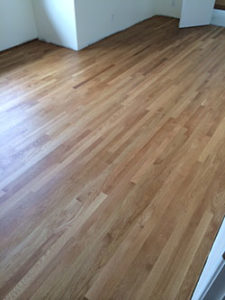
When we installed this hand scraped engineered floors in Danville we took the time to educate our customer of the future options for the floor. We told them that these floors could not be re scraped or refinished. The only thing that could possibly be done is a buff and recoat.
I recently visited a home in San Anselmo, CA that had the same product installed by another company. The only issue the home owners had with the floor was the color. They were never told at the point of sale that their floors could be recoated because of a unique additive to the finish which was applied in the factory. In that case, they were stuck with a floor that would definitely need to be replaced in a few years.
When investing your money in a new hardwood floor make sure your product is versatile. Talk to the person selling you the hardwood floor about what can be done in the future in regards to refinishing your floors. Engineered floors don’t come cheap and hand scraped engineered floors are even more expensive, so when you invest a good amount of money in a new hardwood floors make sure you can service that product in years to come and not have to completely replace it after the finish started wearing off.


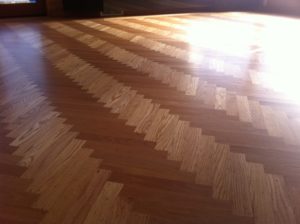 Home services can be cheap or expansive. Some services that come to mind are plumbing, heating, painting, kitchen remodeling and of course wood floors. We all know the saying you get what you pay for. In most cases it is true and I have seen too many floors that failed because of a price point decision made by the consumer. The most common mistake consumers make is hiring flooring contractors based on price or letting the price be the first deciding factor on their list.
Home services can be cheap or expansive. Some services that come to mind are plumbing, heating, painting, kitchen remodeling and of course wood floors. We all know the saying you get what you pay for. In most cases it is true and I have seen too many floors that failed because of a price point decision made by the consumer. The most common mistake consumers make is hiring flooring contractors based on price or letting the price be the first deciding factor on their list. 